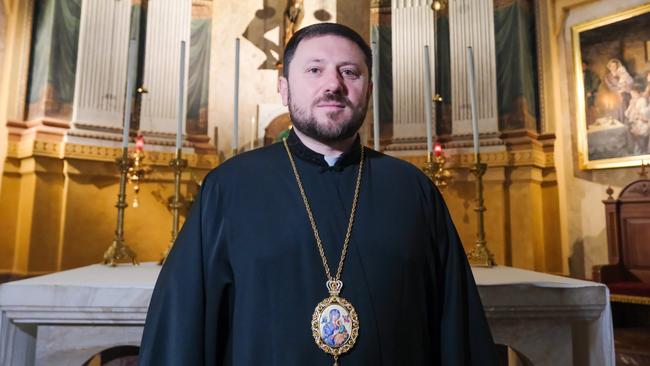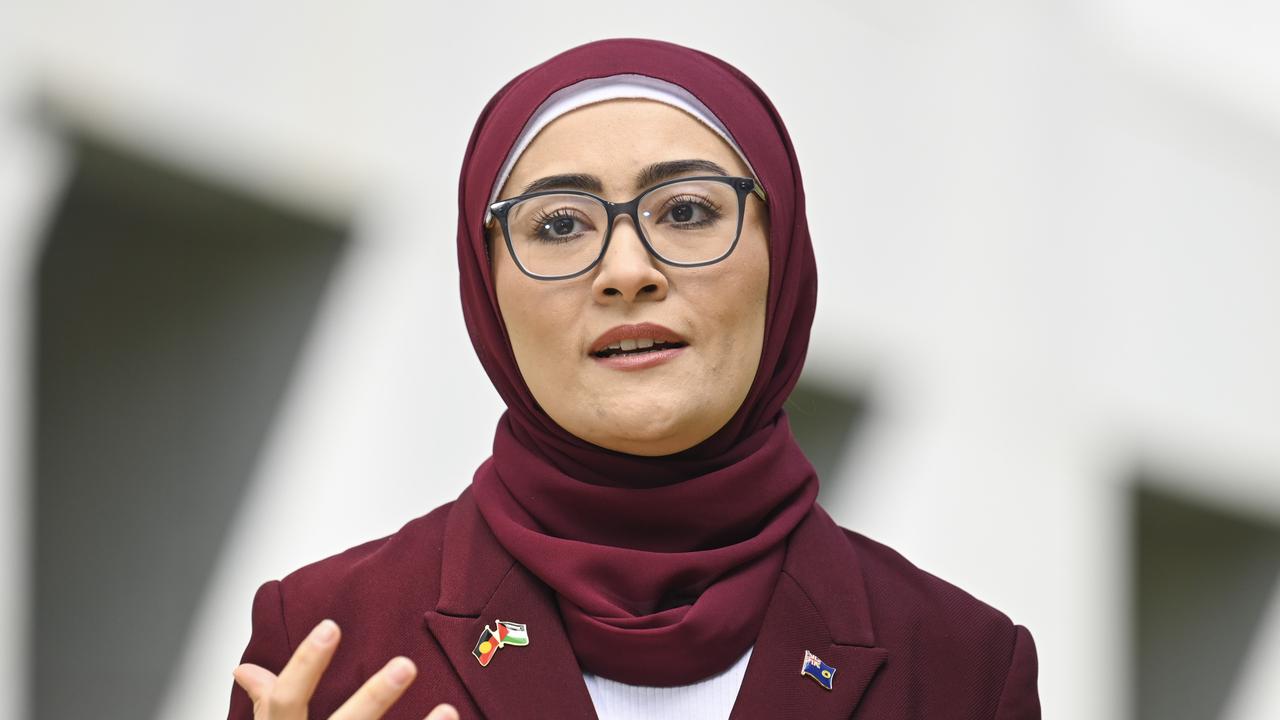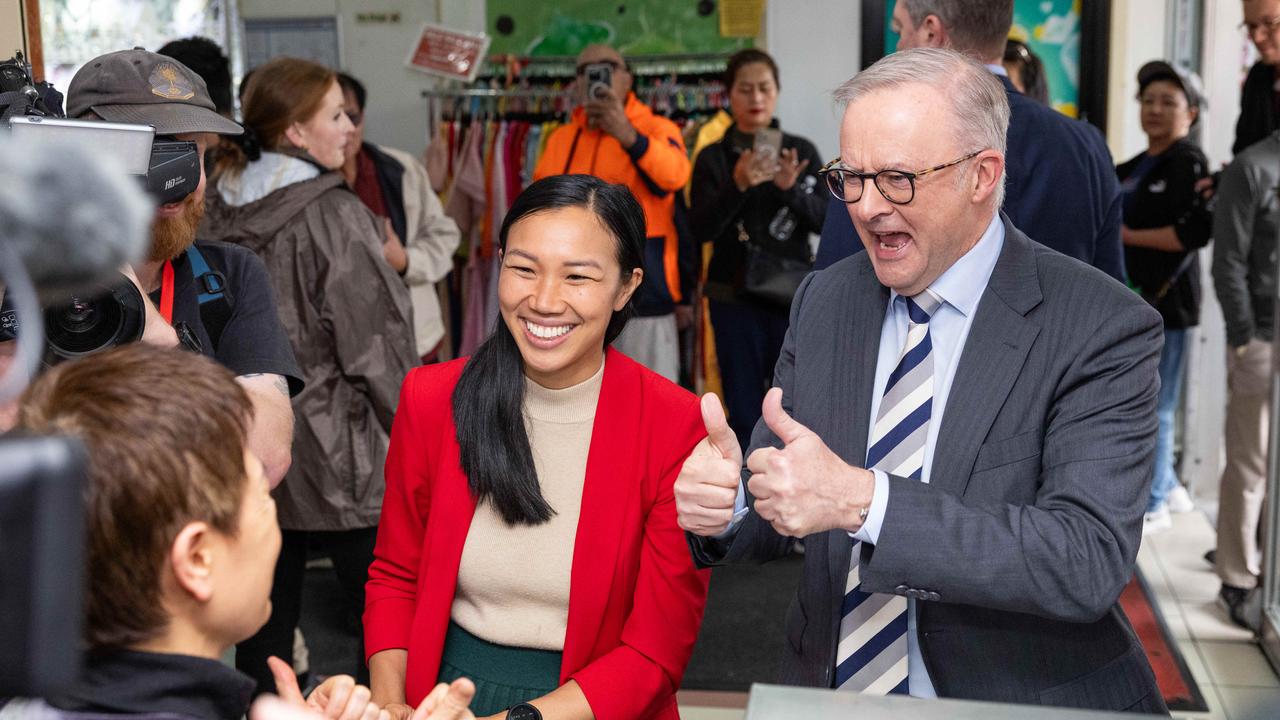Australian-based Ukrainian missionary Mykola Bychok to become a cardinal
Mykola Bychok will stand out in more ways than one when Pope Francis makes him a cardinal on Saturday afternoon.

Mykola Bychok will stand out in more ways than one when Pope Francis makes him a cardinal on Saturday afternoon.
The Australia-based, Ukrainian-born missionary has been to far-flung outposts of his Ukrainian Catholic Church: from neighbouring Poland to two years in Siberia, Russia, to Newark in the US, before becoming a bishop at Saints Peter and Paul of Melbourne.
At 44, Bishop Bychok is the youngest of the 21 new cardinals and almost three decades shy of the average age of the College of Cardinals members, which is 71.
Importantly, he is of a generation not linked to the predatory sex scandals of the church.
Bishop Bychok has a solid theological grounding of the Redemptorists.
“He is not the liberal that many people, and maybe Francis, may think,’’ says a member of his congregation. “He is very much drawn to conservative ideals of the church.”
For the consistory, Bishop Bychok will be the only cardinal not given the four-pointed red hat known as a biretta by Francis, who has now grown the College of Cardinals who will eventually elect his successor to be 144 strong.
Instead, the Pope will hand Cardinal Bychok a black monastic veil lined in cardinal red trim, as well as the traditional gold papal ring.
“The veil is a reminder of the ancient practice of our church going back to the 16th century,’’ Bishop Bychok said at the Domus Australia this week.
“It’s a similar sort of headdress that was worn in the 16th century by our bishops.’’
And on the marbled floor of the altar of confession in St Peter’s Basilica, where the consistory will take place, the cardinal-elect will also be heard: he will wear three bells on his robe, a link to the Old Testament.
All of this symbolism reflects Bishop Bychok’s eastern European roots, but front and centre on the specially made red mantia are the prominent embellishments of icons of Peter and Paul to acknowledge the Melbourne church.
While the Europe-based cardinals have found their way to a longstanding ecclesiastical tailor’s shop near St Anne’s Gate in Vatican City, the Australian soon-to-be cardinal went closer to home for the hand sewing – finding a Serbian cleric in Sydney to make the vestments that were finished just hours before leaving for Rome last week.
In the hours before the consistory, St Peter’s was a hive of activity. Men in a cherrypicker were putting the final baubles on a large Christmas tree in the centre of the square; carabinieri roamed with machine guns and airport-style security scanners were positioned to check all comers.
Bishop Bychok’s supporters have travelled from around the world to witness his rapid elevation within the Catholic Church: from his Ukrainian roots to church mentors.
Unfortunately, his mother will miss the ceremony as she is recovering from recent surgery, and will watch it on television, but other family members will be in the Vatican, as will scores of Australian supporters.
“Cardinals are appointed for the universal church, but it’s natural that I am cardinal of Australia,’’ he said.
“Why I was chosen? That is a miracle for me.”
He pauses and adds: “I just don’t know why.”
When pressed about his skills that the Pope may draw upon, Bishop Bychok nominates his flexibility, his missionary experience and the need to be sensitive to the situations of the church, as well as his life’s work in reaching out to people.
Pope Francis has had a tendency to bypass the bigger congregations and turn to pastors in far-flung posts. In selecting Bishop Bychok, he overlooked the archbishops in Melbourne, Sydney and Perth, as well as Sviatoslav Shevchuk, the major archbishop of the Eastern Catholic Church in Ukraine.
Bishop Bychok told The Weekend Australian he had been attracted to the congregation of Redemptorists as a teenager in his western Ukraine home town of Ternopil, inspired by an older priest, Father Mykhaylo Shevchyshyn, and a younger one, Father Volodymyr Vons.
This was in the early 1990s when Ukraine was in the midst of considerable economic and social turbulence forging its independence from the Soviet Union.
“It was my dream to be like one of them,’’ Bishop Bychok said.
Fluent in four languages – Ukrainian, Russian, Polish and English – Bishop Bychok is concerned about the distractions of young people in Australia, with his church facing the same challenges as others to attract members.
“I think the mission of today’s church is not to wait in churches for people to come, but to go out looking for people,’’ he said.
“This is what we are doing in Australia: we are looking for people, this is like Apostolic time (the beginnings of Christianity). You are going from this home to that home, visiting families.
“So I will share this experience first, and then second I will be the voice of the Australian church as well as the Ukrainian church. Maybe my weak voice will be helpful to stop this war, not only in Ukraine, there are many wars around the world, so maybe I will be helpful in these areas.”
Bishop Bychok said he found it a difficult choice when he was first asked to be a bishop in 2020 and he had drawn on the experience of the 18th-century Redemptorist founder, Alphonsus Liguori, to make his transition from “being the happiest man in the world being a missionary and being a priest” to serving Rome.
“Saint Alphonsus experienced the same, he was a simple priest, he had a small congregation in the 1730s, and he was called as well, it was a difficult time for him but he was told ‘the pope needs you’, and he became a bishop (of Sant’ Agata dei Goti). He was really helpful for me and he may be helpful to me being a cardinal too.’’ Ahead of the ceremony, Bishop Bychok said he was “at peace” with the decision.
As to his religious foundations, he said: “My views are based on the Bible. So we have strong, unmovable foundations. We can change some approaches for the ministry to bring it up to date, but we have really strong foundations and it is impossible to destroy these. This is because these foundations were received through Jesus Christ, and the word of God is impossible to destroy.”




To join the conversation, please log in. Don't have an account? Register
Join the conversation, you are commenting as Logout